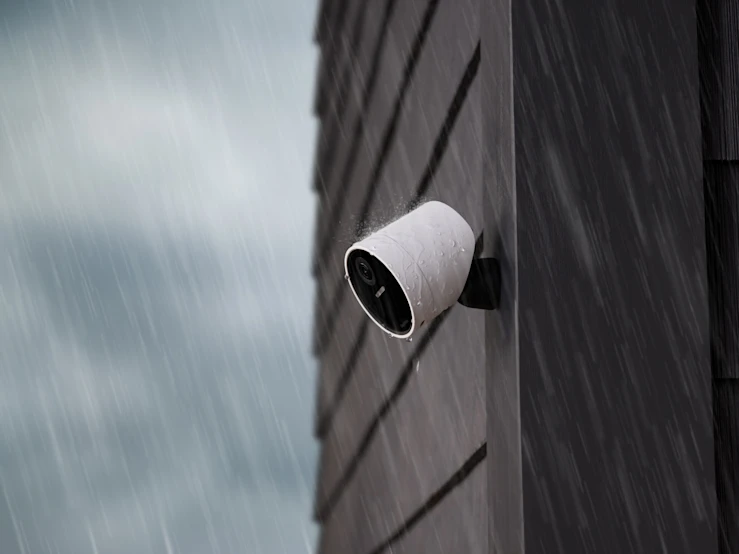Natural Disasters: Hurricanes, tornadoes, floods, wildfires, earthquakes, and other natural disasters can occur at any time, leaving your home vulnerable to all sorts of damage and destruction. Being prepared with emergency kits and evacuation plans, as well as staying informed of potential weather hazards, can help minimize the impact of such events.
Accidents: Accidents can happen anywhere, including at home. It's important to be ready with basic first aid skills and necessary medical supplies in case of an accident. It’s also useful to have a plan for contacting emergency services and knowing the fastest route to the hospital.
Public Health Emergencies: Even though pandemics and epidemics have happened throughout history, the COVID-19 pandemic put many countries and their medical systems into a crisis mode that many were not prepared for. The pandemic happened on a worldwide scale, but there can be public health emergencies that impact your own community.
Home Invasions: Home invasions are a serious concern for many people, and they can happen even when you’re at home. This has led many people to consider investing in a smart home security system.
Cybersecurity: In today's world, we rely heavily on technology, making us vulnerable to cyber threats such as identity theft, hacking, and phishing scams. Taking the necessary steps, such as using strong passwords, updating software regularly, and being vigilant of suspicious emails, can help fortify your home against cyberattacks.
Power Outages: Power outages can occur unexpectedly, leaving our homes without electricity, heating, or cooling. Being prepared with alternative power sources such as generators or solar panels, keeping non-perishable food and water, and having emergency lighting can make a significant difference in such situations.
National Preparedness Month: Fortify Your Home
Posted September 4th, 2024 by SimpliSafe

September is National Preparedness Month and a reminder of the importance of preparing for unexpected emergencies.
While there are many ways to get yourself prepared — such as educating yourself about the different disasters that can possibly strike in your area — one of the simplest steps you can take is fortifying your home against the elements.
While nothing is ever 100% when it comes to fighting the forces of nature, a smart home security system can go a long way in helping you protect your home from various disasters.
Understanding Various National Emergencies
Emergency preparedness is critical in keeping you and your loved ones safe from unexpected events, whether they be natural disasters, accidents, or other types of safety emergencies. Because most of us are distracted by the busyness of everyday life, National Emergency Preparedness Month provides us an opportunity to reflect on safety practices and develop new ones, if necessary.
The first step is to know which emergencies could possibly hit your area and during what times of year. For instance, we all know that blizzards are common in many parts of the U.S. during the winter season, while floods are common in coastal areas during the months with high precipitation.
Some examples of emergencies are:
Simple Ways to Fortify Your Home
In addition to investing in a smart home security system that will alert you to coming disasters, here are some other ways to help prepare your home during National Emergency Preparedness Month:
Secure Your Doors and Windows: Doors and windows are the most vulnerable entry points in your home, not just for burglars but also for strong winds and storms. Ensure that your doors have a sturdy deadbolt lock and that the frames are strong enough to resist forced entry. Windows should also have locks, and you can add security film to make them more shatter-resistant.
Reinforce Your Garage Door: You can reinforce your garage door by installing a heavy-duty deadbolt and ensuring that the door is in good condition. Also, consider removing valuable items typically stored in your garage and storing them inside before a forecasted storm.
Evaluate Your Landscaping: Throughout the year, make sure that you properly maintain your property’s vegetation, including trimming loose branches, cutting back overgrowths and removing debris buildup in gutters and drains to improve irrigation.
Smart Home Security: Tips to Fortify Your Home
One of the best ways to protect your home from emergencies is by investing in a smart home security system. Here are some practical tips to help you fortify your home with SimpliSafe's range of smart home security solutions:
Use Motion Sensors: Place motion sensors inside your home to detect any movement, triggering alarms and notifications if someone enters your property without authorization.
Install Cameras: SimpliSafe's outdoor cameras are weather resistant and feature night vision, meaning you can still view footage during the stormiest of days.
Add Water, Temperature and Smoke Detectors: SimpliSafe offers a variety of sensors that help detect some of the most common home hazards, including leaks, extreme temperatures and smoke. Whether the leaks, extreme temperatures or smoke are caused accidentally or by a natural disaster, knowing what’s going on — especially if you need to evacuate — can help you save on potential damage costs.
Invest in Professional Monitoring: By adding a professional monitoring service to your home security system, you can rest assured that during an emergency, SimpliSafe’s expert monitoring agents will dispatch the appropriate emergency authorities so you can the help you need quickly.
Prepare for Power Outages: Have a backup power supply and a communication plan in case of power outages or other disruptions. SimpliSafe's systems can run on battery power, providing continuous protection even during power outages.
Add SimpliSafe to your National Emergency Preparedness Month To-Do List
National Emergency Preparedness Month is a reminder to take steps to protect yourself, your family, and your home, no matter what can happen. From protecting yourself from intruders to having a sturdy shelter in a dangerous storm, a smart home security system can help fortify your home against the unexpected
With SimpliSafe's easy-to-install and easy-to-use smart home security solutions, you can have peace of mind knowing that your home and loved ones are protected. Visit the shop now and get ready by September.